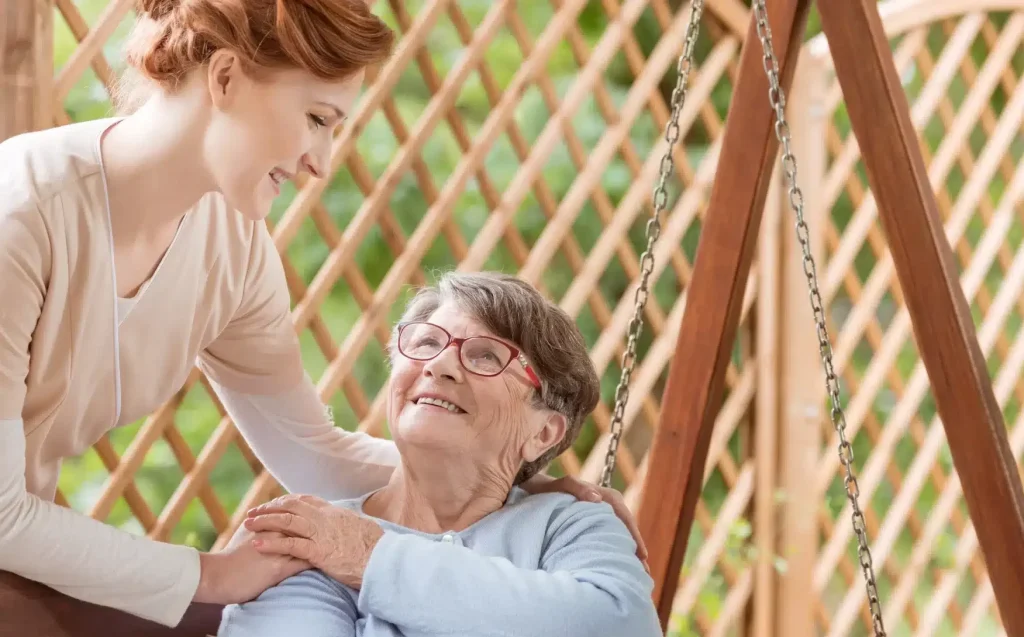As individuals age, maintaining independence and autonomy becomes increasingly important for preserving dignity, quality of life, and overall well-being. Aging in place—remaining in one’s own home and community as one grows older—is a desire shared by many seniors. Home health care plays a vital role in supporting aging in place by providing personalized, comprehensive care that enables seniors to maintain their independence, safety, and comfort while continuing to live in the familiar surroundings of their own homes.
Personalized Care Plans: One of the key ways home health care supports aging in place is through the development of personalized care plans tailored to each individual’s unique needs, preferences, and goals. Home health professionals work closely with seniors and their families to assess their current abilities, challenges, and priorities, and to develop customized care plans that address their specific requirements. These care plans encompass a range of services, including assistance with activities of daily living (ADLs), medication management, medical monitoring, rehabilitation therapy, and emotional support, all designed to help seniors maintain their independence and quality of life.
Assistance with Activities of Daily Living (ADLs): Home health care aides provide invaluable assistance to seniors with activities of daily living, such as bathing, dressing, grooming, toileting, and meal preparation. By helping seniors with these essential tasks, home health professionals ensure their safety, comfort, and well-being while enabling them to remain independent and self-sufficient to the greatest extent possible. This assistance allows seniors to maintain their dignity and autonomy while continuing to live in their own homes, rather than having to rely on institutional care settings.
Medical Management and Monitoring: In addition to assistance with ADLs, home health care also encompasses medical management and monitoring services to address seniors’ healthcare needs. Skilled nurses, therapists, and other healthcare professionals provide medication management, wound care, chronic disease management, vital sign monitoring, and other medical interventions to help seniors manage their health conditions and prevent complications. By receiving medical care at home, seniors can avoid unnecessary hospitalizations and emergency room visits while maintaining their independence and quality of life.
Safety and Fall Prevention: Home health care professionals also play a critical role in ensuring seniors’ safety and reducing the risk of falls and accidents in the home. They assess the home environment for potential hazards, such as loose rugs, uneven flooring, poor lighting, and clutter, and provide recommendations for modifications to improve safety and accessibility. Home health aides also assist seniors with mobility, transfers, and exercises to strengthen muscles and improve balance, reducing the risk of falls and promoting independence and confidence.
Emotional Support and Social Engagement: In addition to physical care, home health professionals also offer emotional support and social engagement to seniors, addressing their psychosocial needs and promoting overall well-being. Companionship visits provide seniors with opportunities for socialization, conversation, and companionship, reducing feelings of loneliness, isolation, and depression. Home health professionals also provide emotional support to seniors and their families, offering reassurance, encouragement, and a compassionate presence during challenging times.
Conclusion: In conclusion, home health care plays a crucial role in supporting aging in place by empowering seniors to maintain their independence, safety, and well-being while continuing to live in the familiar surroundings of their own homes. Through personalized care plans, assistance with activities of daily living, medical management and monitoring, safety and fall prevention measures, and emotional support and social engagement, home health professionals enable seniors to age in place with dignity, autonomy, and peace of mind. By prioritizing the unique needs and preferences of each individual, home health care helps seniors live life on their own terms, preserving their independence and enhancing their quality of life as they age.





